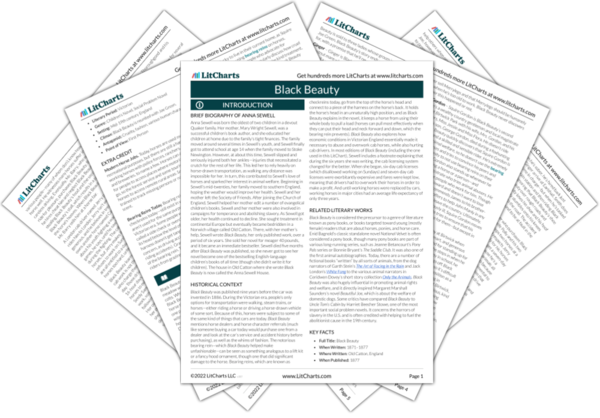Note that while nobody comes for Ginger for hours, Ginger also doesn’t return to the stable on her own—she hasn’t learned that people are there to help her, so it never occurs to her to willingly put herself close to them. Mr. Ryder’s insistence that bad-tempered men make bad-tempered horses is another grim warning to any readers hoping to train a horse. It reinforces the novel’s insistence that horses won’t turn out well if one is cruel to them.
